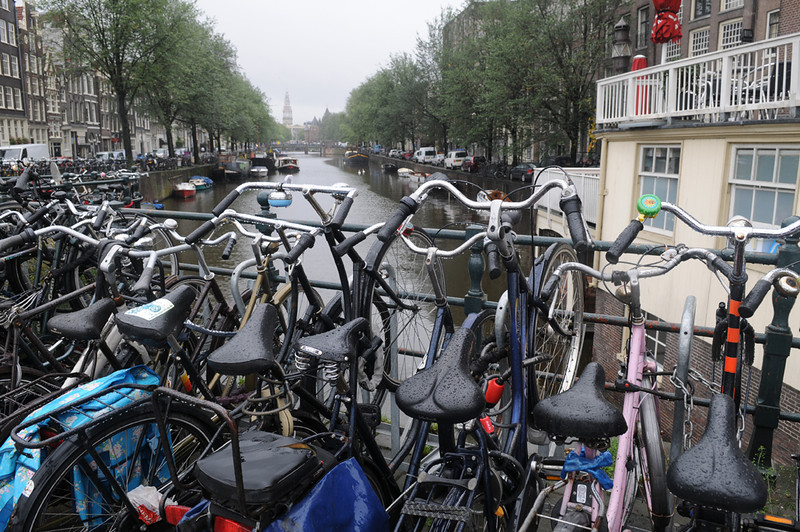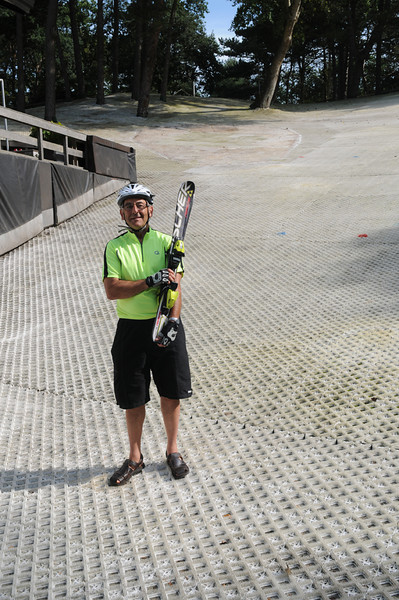You'll need to put your thinking caps on here, and maybe move a bit outside your own personal comfort zones...
I came across this historical video on wimp.com and it gave me some serious pause to think.
Isn't this the direction we are all heading in the future?
How does any of this seem like a bad idea? (I can't see any)
Isn't this the same problem(s) that we are facing here and now, and even more likely so into the future?
How difficult would it be to develop bike path networks, especially urban ones? And how much less expensive would it be to maintain as compared to the massive inner city thoroughfares and congested parkways for motor traffic?
I would love to see a motor-less Sunday tried in an American city. I know that sections of Boulder CO have shutdown to non-motorized traffic only. Those Rocky Mountain hippies always have the good ideas first.
My thoughts:
Riding public transportation (buses, trains and subways) sucks because they don't necesarrily run when you need them to run. Having personal transport, like a bike, is much better.
I know that I personally could benefit a lot from cycling. The older I get, the harder it is to maintain anything close to resembling a healthy situation.
If they closed down the expressways in Boston to motorized traffic, just from the hours of 7AM to 7PM, imagine how easy it would be to get to work.
Is it already too late now? I live 45 miles north of Boston and many of my neighbors commute to the Greater Boston Area for employment. Is the spread already so large that it precludes these alternate options?
Why not a motorized bike lane? Limit the cc's or the speed, or both... but why not? People driving SUVs and pickup trucks to work are what is killing our communities and our economy.
My neighbors driving 45 miles to work are wasting years from their lives in just getting to work. How much do they like talk radio anyway?
Would you miss your car if you didn't drive it so much?
There must be a better way. Discuss...
I came across this historical video on wimp.com and it gave me some serious pause to think.
Isn't this the direction we are all heading in the future?
How does any of this seem like a bad idea? (I can't see any)
Isn't this the same problem(s) that we are facing here and now, and even more likely so into the future?
How difficult would it be to develop bike path networks, especially urban ones? And how much less expensive would it be to maintain as compared to the massive inner city thoroughfares and congested parkways for motor traffic?
I would love to see a motor-less Sunday tried in an American city. I know that sections of Boulder CO have shutdown to non-motorized traffic only. Those Rocky Mountain hippies always have the good ideas first.
My thoughts:
Riding public transportation (buses, trains and subways) sucks because they don't necesarrily run when you need them to run. Having personal transport, like a bike, is much better.
I know that I personally could benefit a lot from cycling. The older I get, the harder it is to maintain anything close to resembling a healthy situation.
If they closed down the expressways in Boston to motorized traffic, just from the hours of 7AM to 7PM, imagine how easy it would be to get to work.
Is it already too late now? I live 45 miles north of Boston and many of my neighbors commute to the Greater Boston Area for employment. Is the spread already so large that it precludes these alternate options?
Why not a motorized bike lane? Limit the cc's or the speed, or both... but why not? People driving SUVs and pickup trucks to work are what is killing our communities and our economy.
My neighbors driving 45 miles to work are wasting years from their lives in just getting to work. How much do they like talk radio anyway?
Would you miss your car if you didn't drive it so much?
There must be a better way. Discuss...
Last edited by a moderator:























































